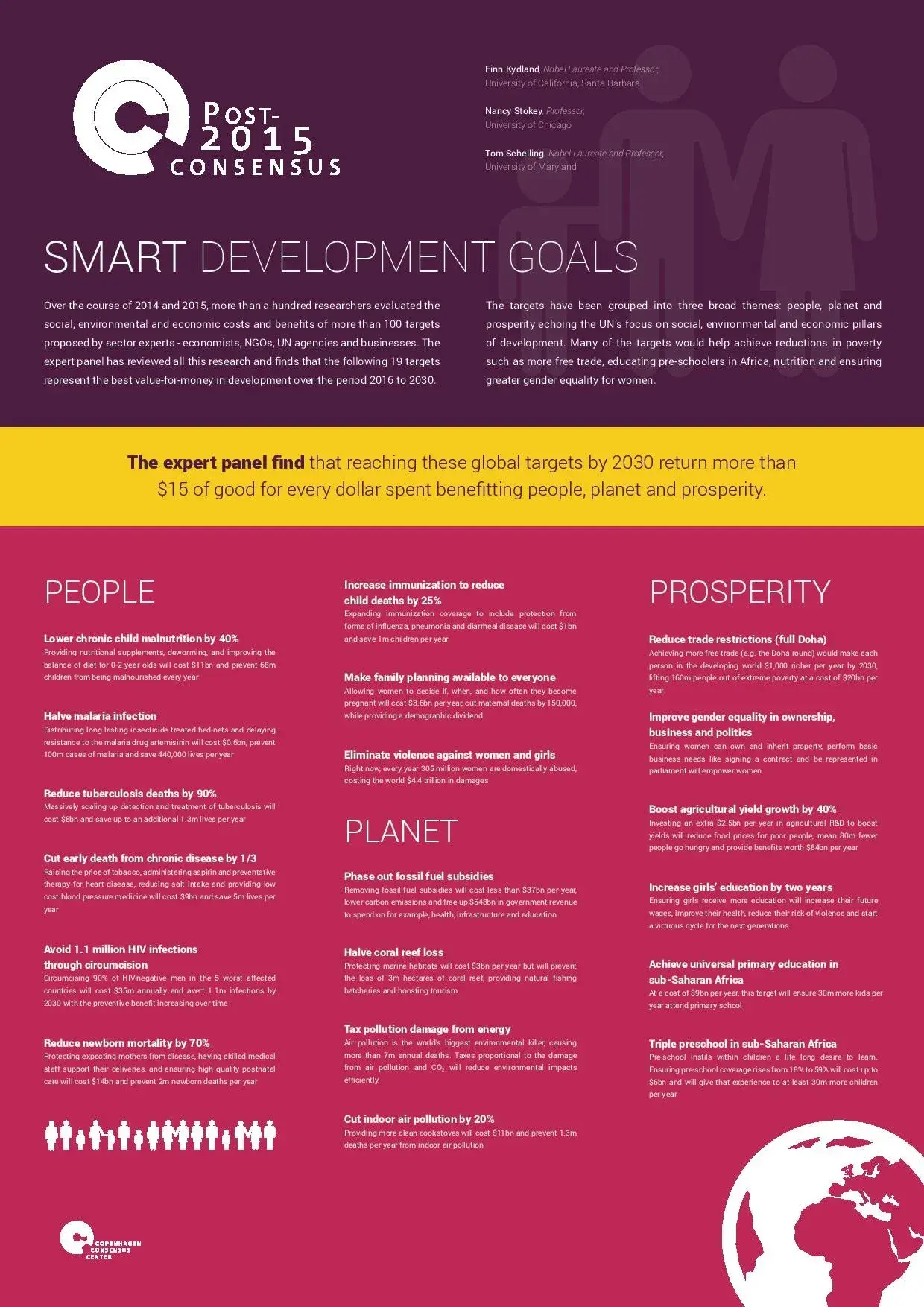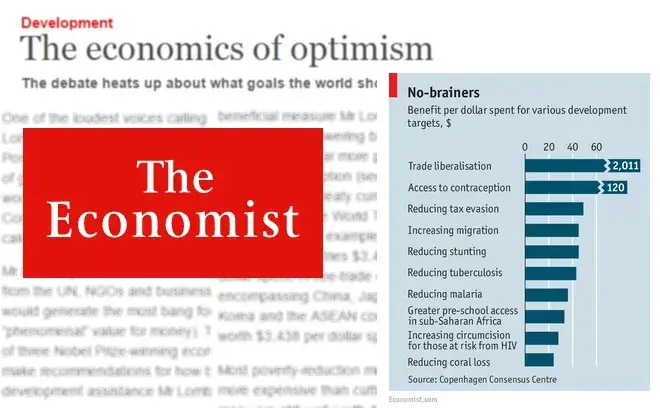Trade: What's the smartest SDG target?

As reported today in for instance India's Economic Times, The Japan Times and Germany's Die Welt, implementing the Doha Development Agenda will make the world $500 trillion dollars richer and by 2030 lift a staggering 160 million more people out of extreme poverty.
Every dollar spent will do thousands of dollars worth of good. Expanding free trade would also dampen price spikes in food markets, contributing to better outcomes for hunger and nutrition. It would increase wealth in the developing world reducing inequality among nations. It would spur economic growth, which is correlated to a number of important development indicators such as lower crime, better governance and improved health.
Furthermore, a disproportionate amount of the benefits will go to developing countries. By 2030, the world will be $11 trillion better off each year, and $7 trillion will go to the developing world. On average, the increased GDP is equivalent to $1,000 more for every person in the developing world in 2030.
Therefore, the paper argues, expanding free trade may be the most valuable post-2015 development target we can envisage.
Implementing free trade is not costless. It will cost about $300 billion in supporting the losers of liberalization in unemployment benefits and re-schooling, along with negotiating expenses and reform advocacy. But these, mainly one-off costs, are small in comparison to the ongoing stream of benefits.
So if the economic case is clear, why isn’t it implemented? Because the anticipated losses in jobs and wealth are very obvious and concentrated, whereas the gains are thinly spread and less-easily identifiable. The few losers are prepared to support politicians who resist protection cuts, while the gains are sufficiently small per person that they do not act collectively to lobby for reform.
You can read all the papers on trade here and download the one page PDF here.
The smartest targets for the post-2015 development agenda
What are the smartest targets for the post-2015 development agenda?
In a world of limited resources, we can’t do everything, but how should we prioritize? The Copenhagen Consensus Center provides information on which targets will do the most social good relative to their costs. The final decision on choosing goals will definitely rest on a number of factors, not just economics – but knowing the costs and benefits provides an important piece of information.
The Post-2015 Consensus brought together, renowned experts from the UN, NGO and private sectors with 60 teams of economists to produced 100+ research papers to establish the most effective targets for the post-2015 development agenda within 22 core issue areas: Air Pollution, Biodiversity, Climate Change, Conflict & Violence, Data for Development, Education, Energy, Food Security, Gender Equality, Governance & Institutions, Health: Chronic Diseases, Health: Health Systems, Health: Infant Mortality & Maternal Health, Health: Infectious Diseases, Infrastructure, Illicit Financial Flows, Nutrition, Population & Demography, Poverty, Science & Technology, Trade, and Water & Sanitation.
An Expert Panel including two Nobel Laureates has reviewed all of this research and identified 19 targets that represent the best value-for-money in development over the period 2016 to 2030.
Only have three minutes? Watch our introduction video to the Post-2015 Consensus project.

Making prioritization a factor in the post-2015 debate
An overview of Copenhagen Consensus' ground-breaking research which is shaping the thinking for the 193 governments about to prioritize the smartest development goals for 2016-2030. If you've just read the article in The Economist you might be interested in exploring more about our project, and the research we've undertaken so we have put together an online supplement with more in-depth information.


